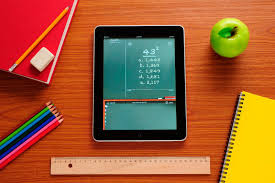Practitioners’ skills and knowledge of ICT is critical for the effective use of ICT within education. However, studies have shown that teachers don’t feel prepared to integrate technology into their classrooms in order for students to learn new skills (Doering, Hughes & Huffman, 2003; Imbimbo, 2003; Kelceoglu, 2006; Flemming, Mota-Medi & May, 2007). It is evident that without good guidance and education about how to efficiently use computers and ICT within educational settings, practitioners tend to make their own decisions about the extent of involvement of technology within their classroom (Bolstad, R). Dockett, Perry and Nanlohy (1999) state; “These decisions are influenced by such factors as teachers’ own level of confidence with computers, and their beliefs about learning and teaching in the early childhood years”. However, this statement is more than 10-years-old, which means nowadays, practitioners would have a lot more training and guidance to ensure their knowledge and confidence of ICT is up to a standard that allows them to integrate it into their lessons.
Effective uses of ICT may include simple apps or website, such as Puppet Pals or Voki, which will encourage students to be creative. Also, by encouraging students to work in groups or in pairs, this will help develop their ability to share.
Here is an example of a Voki:
http://www.voki.com/site/pickup?scid=13646833&chsm=8ec3b5b06139bc97738114529307291e
References:
Bolstad, R. (2004). We have the technology, now what? Practitioners learning to use ICT in early childhood educational settings. The role and potential of ICT in early childhood education. 37-51.
Dockett, Perry & Nanlohy. (1999). Cited in; Bolstad, R. (2004). We have the technology, now what? Practitioners learning to use ICT in early childhood educational settings. The role and potential of ICT in early childhood education. 37-51.
Doering, A., Hughes, J., & Hu man, D. (2003). Preservice teachers: Are we thinking with technology? Journal of Research on Technology in Education, 35(3), 342–362.
Fleming, L., Motamedi, V., & May, L. (2007). Predicting preservice teacher competence in computer technology: Modeling and application in training environments. Journal of Technology and Teacher Education, 15(2), 207–231.
Kelceoglu, I. (2006). An exploratory study of rst-year elementary teachers’ utilization of technology. Unpublished thesis, Ohio State University, Columbus, OH.
Imbimbo, J. (2003). e voice of the new teacher. Washington, DC: Public Education Network.




